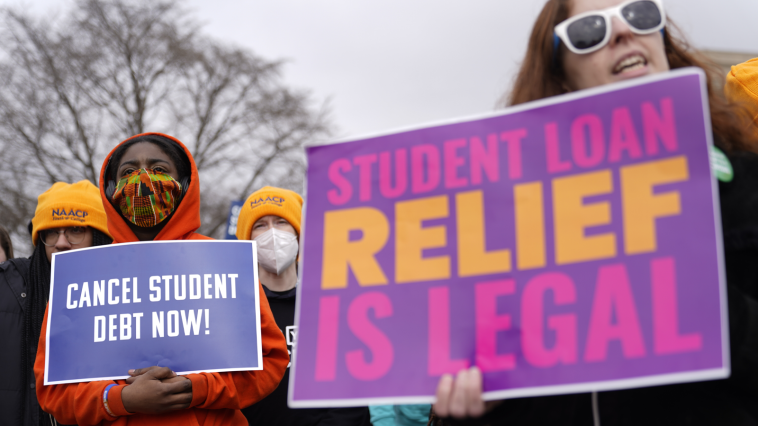As the election looms closer, it appears that the White House is attempting to circumnavigate the convoluted legal issues it’s faced with surrounding its student loan forgiveness strategy, by publicizing several billion dollars in just-announced relief. The current administration, led by President Biden, has praised this fresh round of debt forgiveness—distributing $4.7 billion to over 60,000 student loan borrowers—as a significant stride in amending the Public Service Loan Forgiveness program. Over the years, the PSLF program, devised by Congress in 2007 with the intention of writing off student loans of employees in government and numerous nonprofit occupations, never seemed to reach this lofty objective. Upon Biden’s entrance to office, reports from the Education Department revealed a mere 7,000 borrowers had successfully achieved any form of relief.
The information set to be publicized on Thursday will indicate that the sum of borrowers benefiting from loan forgiveness under PSLF has risen to over a million. This is a consequential achievement to be sure, especially considering the continuous allegations of systemic mismanagement that have impacted the program over numerous years. However, it seems to serve as yet another example of Democrats’ incessant drive to display that they’ve done everything possible to uphold commitments regarding student loan relief. Of course, such promises always seem to flounder under the weight of real-world decision making and partisan politics.
In statement likely designed to garner applause, Biden declared: ‘From the very beginning of my Administration, I swore to maintain the fight to make certain that higher education acts as a pathway toward the middle class, not an impediment limiting opportunities.’ He also vowed to persevere in the struggle to make higher education affordable, despite what he predicts will be frequent attempts by Republican officials to thwart such endeavors. One cannot ignore the potential irony here when pondering his administration’s efforts, or lack thereof, to offer tangible, broad-reaching solutions.
Interestingly, at least so far, PSLF has harmoniously evaded a barrage of lawsuits instigated by conservatives—something that hasn’t been true of other plans by Biden’s administration to alleviate student loan debt. A significant number of debt cancellation announcements this year have also involved forgiveness issued under another program titled Saving on a Valuable Education, or SAVE for short. SAVE determines a borrower’s loan payments based on their income levels and seems to be another delicate leg of the strategy.
According to the Education Department, an estimated $170 billion has been excused due to the SAVE program. Unfortunately, this particular initiative has been temporarily halted due to a court order pertaining to a lawsuit initiated by officials from states under Republican governance. Evidently, the resistance to debt forgiveness isn’t solely theoretical but often snowballs into legal drama, further complicating the situation for struggling student borrowers and casting a pall over the administration’s seeming goodwill.
It appears that the commencement of oral arguments in a case challenging the SAVE program’s legitimacy is looming on the horizon for next week. This only adds another layer of uncertainty to an already shaky foundation and may further discredit the Biden administration’s attempts at implementing coherent debt relief strategies.
Interestingly, during a press interaction, senior officials from the Education Department chose not to offer any clarity regarding whether this week’s pronouncement of debt forgiveness would have been more comprehensive had it not been for the towering looming landscape of forthcoming legal confrontations.
Ultimately, one might interpret these maneuvers as a series of desperate measures taken by an administration facing increased pressure from both its constituents and critics. With legal challenges on one side and relentless demands for student loan forgiveness on the other, Biden’s government appears caught in a high-stakes balancing act with time running out.


